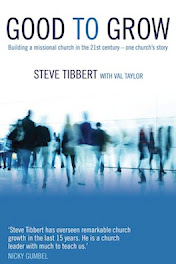Further ideas from Honor & Shame by Roland Muller...
Muller attributes the loss of shame in western cultures to the result of the work of the followers of Freudian psychology which has taken guilt from our culture and substituted ‘guilt feelings’ and where any fault is generally attributed to others (e.g. parents). From the 1960s onward the west has seen a shift from ‘right and wrong’ to ‘cool and uncool’ – part of the honour/shame paradigm.
According to Muller, the major difference between the east and the west is not the shame concept but the difference between the group mentality and individualism. Eastern shame is the more powerful because it rests on the group and not the individual.
Western culture has lost most of its understanding of shame and honour, but the Bible is full of it. It begins with man’s fall into shame and ends with glory and honour for Jesus. Old and New Testaments together contain 190 references to honour, guilt has 40, while shame has over 100. However, counting words is not enough to convey the reality that honour and shame hold a high place.
The story of slavery in Egypt and the Exodus shows God’s power to raise his people from shame to honour. It is not just a story about God redeeming his people (legal concept) but of raising them from shame. This leads us directly to the concept of grace since it is an unwritten rule of the east that no-one can elevate themselves. That everyone knows their place and must stay in it is a fact countered by the message of the Gospel: God has the power and the desire to elevate man from his lowly position to one of honour.
God also moves us from defiled to cleansed, naked to clothed, from expelled to visited by God and rescues us from shameful relationships. The story of the Prodigal Son embodies all these elements – he returned in shame, the father raises him from a place of shame to one of honour, covering him in a new robe. The ultimate picture is of Christ on the cross bearing our sin AND our shame. To be thrown out of the family is the ultimate shame - apart from which the family/tribe (with the accompanying group mindset) provides what is needed in life – fellowship, money, opportunity, education, spouse, security. A man without a family/tribe is in an impossible situation.
To be continued...
Charismatic Gifts in Church History
4 weeks ago






